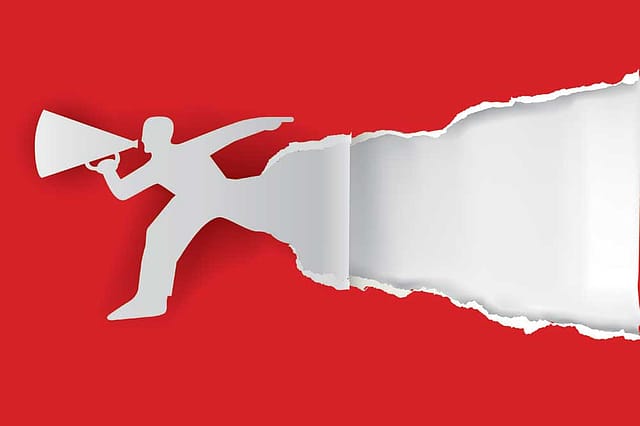The Pursuit of Greatness

IT WAS AN ACRONYM THAT concentrated the fans' minds as Lionel Messi lifted the World Cup in Qatar. Is he the GOAT, the Greatest of All Time? Or, is he just one of the football trinity, the other two being Pelé and Maradona? Whatever, in the post-Cup delirium, the pibe who needed regular hormone shots to become tall enough to be a player, was on that evening Our Man of Deliverance—once it was God's hand; today it's the lyrical foot of a demi-god. The GOAT debate is unlikely to be settled, and a French pibe may make it even more difficult.
Greatness is a struggle, a curse, an endpoint in catharsis. Its narrative sweep stretches from the exceptionalism of individuals to the passions of nation-states. Greatness is a story written and rewritten, featuring the most creative and the most disruptive, and its reward for the normal majority is a mixed bag.
We need those stories; they add enchantment to otherwise weary days of the ordinary. Greatness is an acknowledgement, an indebtedness, and the last honour we strive to bestow upon those who have imagined an alternative to which we all seek entry. It's written in a book, painted on a canvas or played out on a piano, and it's for us to grade what we read or see or listen to in the most satisfying, unscientific way. It is the subjectivity of the process that makes greatness a debate and a dispute.
Openomics 2026: Continuity and Conviction
06 Feb 2026 - Vol 04 | Issue 57
The performance state at its peak
Beyond the cultural space, greatness is synonymous with power and grandeur, wealth and expansiveness, and exaggerated by both geography and history. A conqueror gains the suffix of "the Great" and many others make it a delusion, or a never-ending desperation. Their stories are repeated as reminders of ambition and hubris, of the possibilities of dream and the transgressions of me-aloneness.
And the fall of the great shatters the assumptions on which men and empires built their glory. The fall of great powers charts history's most prolonged, or most abrupt, osmosis. It originates in the degeneration of a system that has exhausted morality as well as imagination, or in the inability to absorb the attitudes and aspirations of a different time and space. It reveals the insufficient creativity of those who struggle for eternity.
Even today the struggle—or its absence—makes some of politics' most engrossing— and at times depressing—stories. Great Britain strains to validate the adjective. Broken Britain, of revolving-door prime ministership and Conservative crack-up, is a good example of how the combined power of bad politics and bad economics can unmake legacies. Pax Britannica rules the last fantasy of the radical Brexiteer as Little England consistently fails in the craft of ruling. There is no better story than today's Great Britain to illustrate the redundancy of greatness in the evolution of political power.
Across the Atlantic, Greatness is an invocation that polarises—and turns democracy into a conspiracy. Make America Great Again (MAGA), the signature Trump slogan, reinvents the past to imagine the future. It mobilises national nostalgia, weaponises patriotism, and markets the rage against institutions that stood in the way of greatness as defined by its provocateur.
Elsewhere, in places where the hallucinatory powers of the maximum leader have already forced this century to revisit the darker patches of the past, greatness is permanent paranoia. For the new helmsman of China who is busy manufacturing a cult taller than Chairman Mao, greatness is achieved by curating fear at home and terror on borders. Xi Jinping's Greater China project is perhaps the singular factor that unravels globalisation in the most violent ways.
Vladimir Putin beats them all. In his self-portrait, he presides over the ruins of greatness, surveying shattered pride and mounting humiliations, angry, vengeful. Behind the launch of the first fullscale land war in more than seventy-five years lies a neo-czar's grievance. Greatness of the lost imperium multiplies in his feverish fantasy, crosses borders, conquers and kills. He calls his enemy fascist even as he plays the fascist script to terrifying perfection. Greatness is a longing sustained by blood.
It's his victim who redeems greatness, in all its humane, heroic poignancy. Volodymyr Zelensky brings out the greatness of resistance—and the urgency of freedom. His victimhood has given world leaders an opportunity to prove the greatness of solidarity and fraternity. Many have failed.
IDEAS OF GREATNESS power the politics of the reawakened Hindu too. The most definitive cultural shift in India is an expression of greatness as well. The aggrieved Hindu has lived for so long in the remoteness of civilisational memory, without the political means to reclaim his place in the sun. Narendra Modi has rearmed him, setting the stage for a transformative moment in democracy. Leaders burdened with a sense of national greatness breaching the constraints of democracy may be a familiar sight today. Modi is not one of them. The pursuit of greatness has become a rite of affirmation in Modi's India. It has changed everything, and some of us are still refusing to realise the magnitude of the change in India's cultural as well as political behaviour. Greatness doesn't hurt, as imposed adjectives of India did in another era.
Still, returning to the playing field of greatness, superlatives of attainment shine when fairness, flair and imagination make it a game of a lifetime. The pursuit of greatness defeats the challenger but doesn't diminish the spirit of the challenge itself. That's something to remember as we step into a new year.
Happy Holidays.
